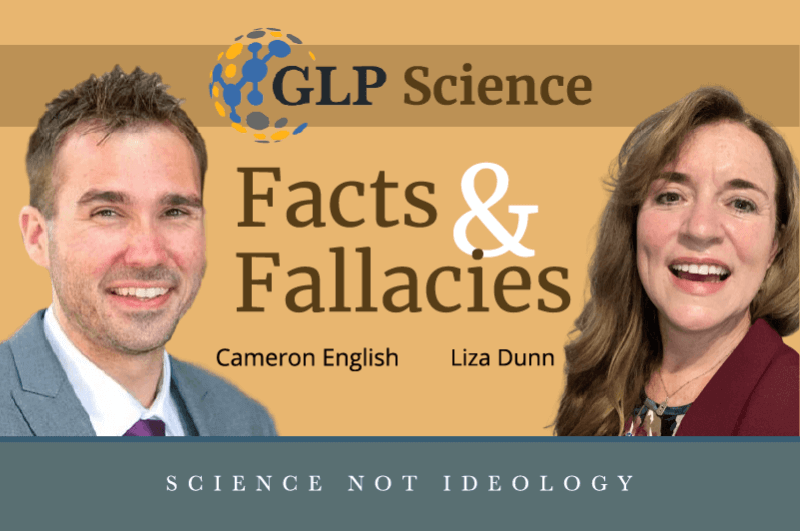Podcast:
Podcast: Play in new window | Download
Subscribe: RSS
Video:
Join hosts Dr. Liza Dunn and GLP contributor Cameron English on episode 238 of Science Facts and Fallacies as they break down these latest news stories:
Anti-depressants and recently approved weight-loss drugs like Ozempic have something in common: they seem to work very well for many patients, who experience few negative side effects and manage to take control of their mental health or weight. This message is often obscured because we don’t always know why these drugs work for some people but not others. That uncertainty drives fearful media coverage and engenders skepticism among the public. Can the available evidence help clarify how these medications work?
As developing nations grow wealthier, demand for meat and other animal products will increase. Using gene editing technologies like CRISPR, scientists can breed animals that are disease resistant, and farmers who lose fewer cows, pigs and chickens to costly diseases can produce much more food than was previously possible. These observations prompt an intriguing question: is it immoral to oppose animal gene editing if it gives more people access to a sustainable food supply? One scientist says yes. Let’s take a closer look at his argument.
The US has widespread access to safe, clean drinking water—which is a key “measure of progress against poverty, disease, and death,” according to the Centers for Disease Control and Prevention (CDC). Unfortunately, recent news coverage has misused research conducted by the Environmental Protection Agency (EPA) to allege that our water supply contains harmful chemicals. There is zero evidence to justify such an alarming claim.
Dr. Liza Dunn is a medical toxicologist and the medical affairs lead at Bayer Crop Science. Follow her on X @DrLizaMD
Cameron J. English is the director of bio-sciences at the American Council on Science and Health. Visit his website and follow him on X @camjenglish































